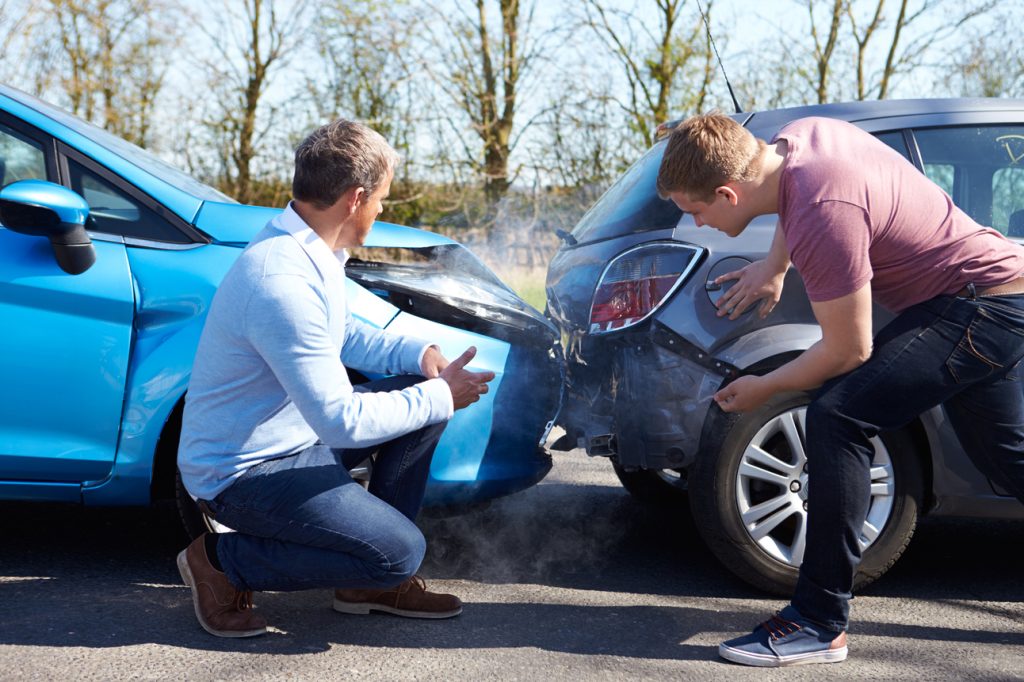
For classic car enthusiasts, owning a piece of automotive history is more than just a hobby—it’s a passion. Whether you’re cruising down Route 66 in a ’57 Chevy or showcasing your meticulously restored Model T at a local car show, your vintage vehicle deserves protection that’s as unique as its heritage. In this comprehensive guide, we’ll explore the ins and outs of classic car insurance coverage in the USA, helping you navigate the road to safeguarding your prized possession.
The Allure of Classic Cars: More Than Just Transportation
Before we dive into the nitty-gritty of insurance, let’s take a moment to appreciate why classic cars hold such a special place in our hearts. These automotive time capsules not only represent engineering marvels of their era but also evoke a sense of nostalgia and craftsmanship that’s often missing in modern vehicles.
As ClassicCars.com aptly puts it, “Classic cars are rolling works of art that tell the story of our automotive heritage.” This sentiment is echoed by countless enthusiasts who spend countless hours restoring and maintaining these mechanical masterpieces.
Understanding Classic Car Insurance: Not Your Average Auto Policy
When it comes to insuring your classic car, standard auto insurance simply won’t cut it. Classic car insurance is a specialized form of coverage designed to address the unique needs and values of vintage vehicles. Here’s why it’s essential:
- Agreed Value Coverage: Unlike regular cars that depreciate over time, classic cars often appreciate. Standard policies typically offer actual cash value, which may not reflect your car’s true worth. Classic car insurance provides agreed value coverage, ensuring you’ll receive the full insured amount in case of a total loss.
- Flexible Usage: Many classic car owners don’t drive their vehicles daily. Classic car insurance often offers flexible mileage plans, allowing you to pay only for the coverage you need.
- Specialized Claims Handling: Insurers that specialize in classic cars understand the intricacies of vintage vehicles and can provide expert claims handling and repair services.
- Roadside Assistance: Many classic car insurance policies offer specialized roadside assistance tailored to the unique needs of vintage vehicles.
- Coverage for Memorabilia: Some policies even extend coverage to your automotive memorabilia collection, adding an extra layer of protection for your passion.
Comparing Classic Car Insurance Providers: Finding Your Perfect Match
To help you navigate the sea of insurance options, we’ve compiled a comprehensive comparison table of some of the top classic car insurance providers in the USA:
Insurance Provider | Agreed Value Coverage | Flexible Mileage Plans | Roadside Assistance | Memorabilia Coverage | Online Quote Available |
|---|---|---|---|---|---|
Hagerty | Yes | Yes | Yes | Yes | Yes |
Grundy | Yes | Yes | Yes | No | Yes |
American Collectors | Yes | Yes | Yes | Yes | Yes |
J.C. Taylor | Yes | Yes | Yes | No | Yes |
Safeco | Yes | Limited | Yes | No | No |
State Farm | Yes | No | Yes | No | No |
It’s important to note that while this table provides a general overview, insurance policies can vary greatly in their specific terms and conditions. Always read the fine print and discuss your unique needs with an insurance agent before making a decision.
Factors That Influence Your Classic Car Insurance Premium
Several factors can affect the cost of your classic car insurance. Understanding these can help you make informed decisions and potentially save money:
- Vehicle Age and Rarity: Generally, older and rarer vehicles may command higher premiums due to their increased value and potential difficulty in finding replacement parts.
- Agreed Value: The agreed-upon value of your vehicle is a significant factor in determining your premium.
- Usage: How often and where you drive your classic car can impact your rates. Many insurers offer lower rates for cars driven infrequently or only to shows and events.
- Storage: Secure, covered storage can often lead to lower premiums as it reduces the risk of damage or theft.
- Driving Record: Your personal driving history plays a role in determining your premium, just as it does with standard auto insurance.
- Location: Where you live can affect your rates due to varying risk factors such as theft rates and weather conditions.
- Modifications: Any modifications or upgrades to your classic car may impact its value and, consequently, your insurance premium.
The Classic Car Community: A Valuable Resource
One of the best aspects of classic car ownership is the vibrant community that comes with it. Joining a classic car club or forum can provide invaluable insights and support, including recommendations for insurance providers.
The Antique Automobile Club of America (AACA) is one of the largest and most respected classic car organizations in the USA. Their forums are a treasure trove of information, with many members sharing their experiences with various insurance providers.
Similarly, online communities like ClassicCars.com Community offer a platform for enthusiasts to discuss all aspects of classic car ownership, including insurance.
Tips for Maximizing Your Classic Car Insurance Coverage
To ensure you’re getting the most out of your classic car insurance policy, consider the following tips:
- Regular Appraisals: Have your car professionally appraised every few years to ensure your agreed value coverage keeps pace with its actual worth.
- Document Everything: Keep detailed records of all restoration work, maintenance, and upgrades. This documentation can be invaluable in the event of a claim.
- Consider Bundling: Some insurers offer discounts if you bundle your classic car insurance with other policies, such as home or regular auto insurance.
- Install Security Devices: Adding security features like alarms or tracking devices may lead to discounts on your premium.
- Ask About Discounts: Many insurers offer discounts for things like membership in car clubs, completion of defensive driving courses, or multi-car policies.
- Review Your Policy Annually: As your car’s value changes and your driving habits evolve, make sure your policy still meets your needs.
The Road Ahead: Emerging Trends in Classic Car Insurance
As the classic car market evolves, so too does the insurance industry. Here are some trends to watch:
- Digital Transformation: More insurers are offering online quotes and policy management, making it easier for tech-savvy classic car owners to manage their coverage.
- Telematics: Some insurers are exploring usage-based insurance for classic cars, using telematics devices to more accurately price policies based on actual driving habits.
- Climate Considerations: With extreme weather events becoming more common, some insurers are adjusting their policies to account for increased risks from natural disasters.
- Expanded Definitions: As newer cars begin to achieve “classic” status, insurers are adapting their definitions of what qualifies as a classic or collectible vehicle.
FAQs: Your Burning Questions Answered
To wrap up our comprehensive guide, let’s address some of the most frequently asked questions about classic car insurance:
1. What qualifies as a “classic car” for insurance purposes?
While definitions can vary between insurers, generally, cars that are 25 years or older, of limited production, and maintained or restored to a high standard are considered classics. However, some insurers may include newer “future classics” or exotic cars in their policies.
2. Can I use my classic car as a daily driver?
Most classic car insurance policies are designed for vehicles that are not used as daily drivers. However, some insurers offer policies that allow for more regular use. Be sure to discuss your driving habits with your insurance provider to ensure you have appropriate coverage.
READ ALSO: Navigating Mortgage Refinancing Options for Homeowners with Low Credit Scores in the USA
3. How is the “agreed value” determined for my classic car?
The agreed value is typically based on a combination of factors, including professional appraisals, recent sales of similar vehicles, and documentation of any restoration work or upgrades. You and your insurer will agree on this value when you take out the policy.
4. Are there any restrictions on who can drive my insured classic car?
Many classic car insurance policies have restrictions on who can drive the insured vehicle. Typically, all drivers must be listed on the policy and meet certain age and experience requirements. Some policies may also restrict the use of the vehicle by younger drivers.
5. What happens if I need to make a claim and my classic car requires specialized parts?
One of the advantages of classic car insurance is that providers understand the unique needs of vintage vehicles. Many policies cover the cost of specialized or hard-to-find parts. Some insurers even have networks of specialized repair shops that can handle the intricacies of classic car restoration.
Conclusion: Protecting Your Automotive Legacy
Choosing the right insurance for your classic car is about more than just protecting a vehicle—it’s about preserving a piece of history. By understanding the unique aspects of classic car insurance and carefully comparing your options, you can ensure that your automotive treasure is protected for years to come.
Remember, the classic car community is a valuable resource. Don’t hesitate to reach out to fellow enthusiasts for recommendations and advice. And as always, consult with insurance professionals to tailor a policy that perfectly fits your needs.
As you hit the open road in your vintage beauty, you can cruise with confidence, knowing that your piece of automotive history is protected by coverage as unique as the car itself. Happy motoring!






